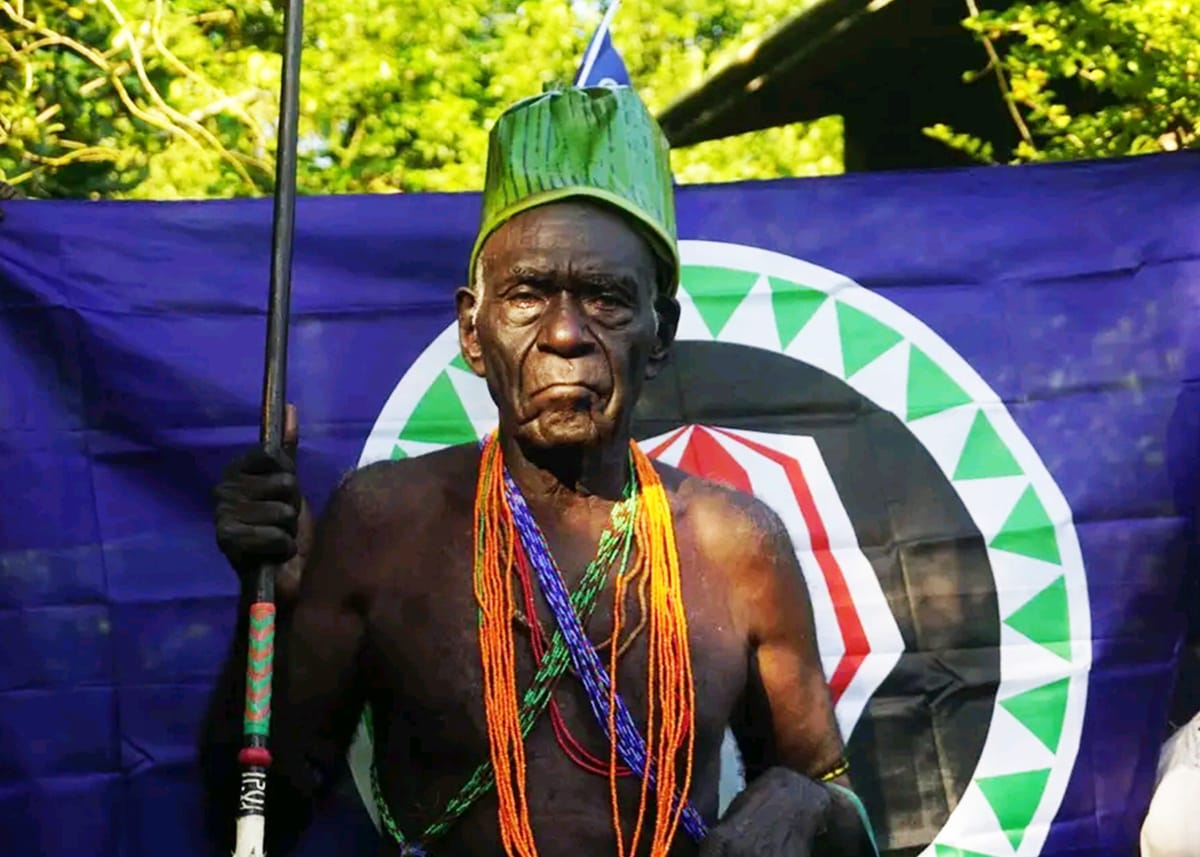.Tensions between Papua New Guinea’s national government and the Autonomous Bougainville Government (ABG) remain as the goal of independence between 2025–27 nears and dialogues stall.
The first Joint Supervisory Body meeting of the year between PNG’s national government and the ABG is set for next week, where leaders will meet in the hope of breaking delays and deadlocks that have followed in negotiations since Bougainville voted for independence in 2019. The hope is that this meeting will finalise arrangements that will lead to the referendum results on Bougainville’s independence reaching the floor of parliament.
The 2023 deadline for parliament ratification has passed as agreed under the Era Kone Covenant which has attracted sharp criticism from the Member for North Bougainville and the Opposition. But Minister for Bougainville Affairs Manasseh Makiba has dismissed these criticisms, correctly pointing out that constitutional processes must be honoured above the Covenant. The post-referendum processes are complex and many unanswered questions remain.
Independence is a highly sensitive issue for Bougainvilleans, particularly those who suffered and lost loved ones during the crisis. They feel with 97.7 per cent supporting the referendum on independence, no more delays and debates are needed. A future political settlement that is anything other than independence brings with it the potential for backlash and criticism. But Bougainvilleans need to think critically and pragmatically about what independence will mean, and particularly, whether immediate independence is really best.
What does independence really achieve?
Under the current autonomous government, the ABG can draw down wide ranging powers. These powers would empower the ABG to manage its own affairs and build strong and effective government institutions in a phased manner. In this way, the foundation for a future independent state could be laid. Yet despite this, many of the basic services required for an effective sovereign state are lacking, particularly for health and education.
The truth is that “independence” is not a panacea for all the issues that currently face the autonomous region. In fact, if done too quickly, it could exacerbate these already pressing challenges.
Under the Bougainville peace agreement, the decision-making authority on independence rests with the PNG parliament. However, it is not clear what parliamentary ratification means.
Leading up to the referendum, an executive director of health services in Central Bougainville spoke to the high child-mortality rates believed to be at 690 per 100,000 live births, and the issue of health centres regularly running out of basic medicine. Health infrastructure was also lacking, with only one hospital, 11 health centres, 24 sub-health centres, and a health worker population ratio of 0.4 to 1000.
Likewise, in the education sector there is limited data on the performance of upper-secondary school leavers, and education infrastructure remains poor. Bougainville has 228 primary schools, with only four lower secondary schools and eight upper secondary schools. This reflects the “bottle-neck” issues seen in the rest of PNG, where the capacity to cater for a steadily growing youth population is lacking. Moving to independence, Bougainville will have to ensure the needs of its people are met or instability and disillusionment could occur.
And ABG spending in these sectors in 2024 is low compared to the amount earmarked for “independence readiness” – expected expenditure for health and education equates to only 2.2 per cent of the total budget.

Has full autonomy been realised?
Under the Bougainville Peace Agreement and the PNG constitution, 59 powers may be “drawn-down” from the national government and implemented by the ABG. To date, only 11 of these powers have been drawn down (some partially, others fully), with the slow progress attributed to a combination of resourcing and institutional capacity constraints.
Revenue generation, which is falling well short of needs, is a key component in addressing these constraints and progressing autonomy. It is expected that of Bougainville’s 2024 projected revenue, only 6.6 per cent will be generated internally because of the small tax base and narrow economy, consisting mainly of ABG public servants who are still paid from National government funds. The 2017 Tax and Revenue Summit examined how the ABG might achieve “fiscal self-reliance”. The enormous revenue gaps can’t be bridged quickly. It was estimated an independent Bougainville would need at least K836 million (A$351 million) – 1500% larger than current levels.
Who decides on Bougainville independence?
Under the Bougainville peace agreement, the decision-making authority on independence rests with the PNG parliament. However, it is not clear what parliamentary ratification means – is it simply an acknowledgement of the results, or more formal acceptance and recognition of Bougainville as an independent nation state? With the ABG preparing a new constitution, this could pre-empt any decision parliament may make.
If parliament chooses not to agree to independence, the ABG could make a universal declaration of independence. However, this would be the third time Bougainville has done so – declaration and recognition are different things. The ABG has invested little to secure recognition from its Pacific neighbours or regional forums, unlike other pro-independence movements such as West Papua and the Kanaks of New Caledonia. Any way you look at it, there is a long and difficult road ahead.
Why the rush?
From a Bougainville political standpoint, President Ishmael Toroama needs to deliver on his campaign promise to secure independence or possibly suffer negative repercussions for his political future. The PNG government needs to make some progress to show it is responding to the overwhelming desire of Bougainville to gain independence.
Despite the political imperatives and pronounced deadlines, there are good reasons to take time before Bougainville cuts loose from PNG. The ABG should slow down to lay a solid foundation for independence and address development challenges. Doing so will position Bougainville for the future, and when the time comes, ensure it is ready to join the international community of nations.


